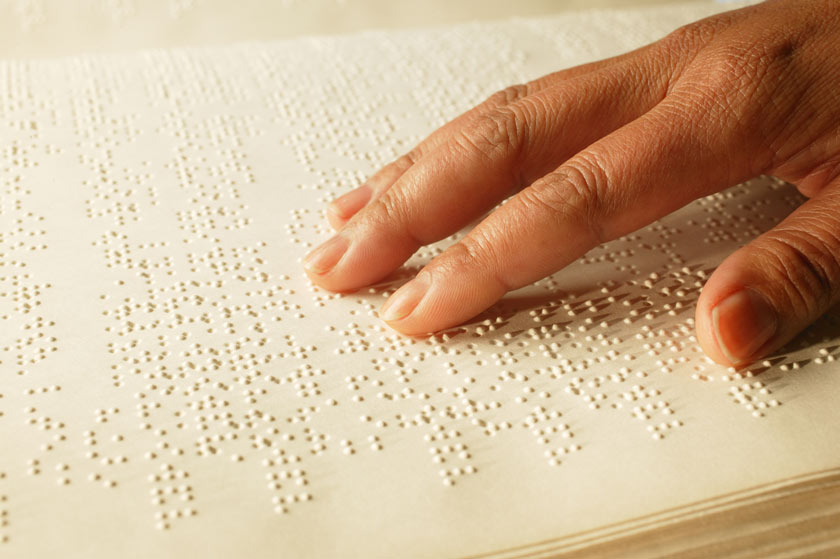October 14, 2021 is World Sight Day. If you are visually impaired, it may be difficult to distinguish most skin cancer warning signs. But there are ways to make sure you’re staying on top of your skin health and detecting potential skin cancers early.
Skin cancer is the cancer you can see, meaning the most powerful tool to detect skin cancer is your own eyes — many early warning signs are visual. A mole with jagged edges or a spot containing several colors should certainly raise some red flags and prompt you to visit a dermatologist. For those who are visually impaired, however, staying vigilant about potential skin cancers is a bit more complicated.
A Tactile Approach
Approaching skin cancer detection with reduced or absent visual cues can be daunting, but it’s not impossible. Focusing on touch, using technology to your advantage, and frequent communication with your medical provider can all help you stay on top of skin cancer detection.
“I have had visually impaired patients whose cancers were detected by feel,” says Beth Goldstein, MD, a dermatologist practicing in Chapel Hill, NC. “Tactile detection works for many nonmelanoma skin cancers.”
Basal cell carcinoma (BCC), for example, frequently presents with warning signs you can sense through touch. A sore that bleeds, oozes or crusts over, a patch of rough skin that itches or an oddly smooth, scar-like area can all be an indication that something isn’t right. Squamous cell carcinoma (SCC) can also have several tactile signs, like raised bumps, a horn-like growth and scaly patches. The precancer actinic keratosis (AK), is often felt before it is seen.
The Melanoma Problem
It can be more difficult to detect melanoma in a tactile way, according to Dr. Goldstein. She says that while most melanomas can be caught while they still have a good prognosis, they may be flat and undetectable through touch in the early stages.
“Once a melanoma is elevated, that’s often a strong indicator that it is also growing deeper into the skin,” Dr. Goldstein. “We know that with melanoma, the likelihood of metastasis and possible death is strongly correlated with the depth of the tumor.”
A visually impaired patient would want to work out an individualized approach with their dermatologist regarding the detection of potential melanomas. Dr. Goldstein recommends having a baseline skin exam with a dermatologist, who would help determine an appropriate level of surveillance based on the person’s risk factors. When determining the frequency of skin exams, a doctor considers several factors specific to the patient. These include the family history of melanoma, presence of atypical appearing moles, total number of moles, skin type and sunburn and tanning history.
“Communication with the primary care provider is key as well,” Dr. Goldstein says. “We want to share the assessment of risk for melanoma so the PCP can also look at the patient’s skin whenever they are in for a visit.”
Between visits, having a partner, relative or caretaker’s help with at home self-exams can be invaluable. Dr. Goldstein says educating this person on the signs and symptoms of skin cancer will help them be able to recognize and point out any suspicious spots.
It’s also important to remember that technology can be a powerful aid when checking your skin. If you can have a loved one take photos of suspicious spots, it can help your physician track any changes when you head in for your skin exam. You may also want to ask your dermatologist to take photos for you if you don’t have someone at home to help. Other options may be on the horizon as well: A recent study found that the majority of patients surveyed recognized some benefits to the use of artificial intelligence (AI) tools in dermatology, including access to healthcare and increased diagnostic speed.
“While this study does not mention visually impaired patients in particular, AI and other technology might be of use in this population,” Dr. Goldstein says. “This could evolve to be an option for visually impaired patients to monitor their skin.”




